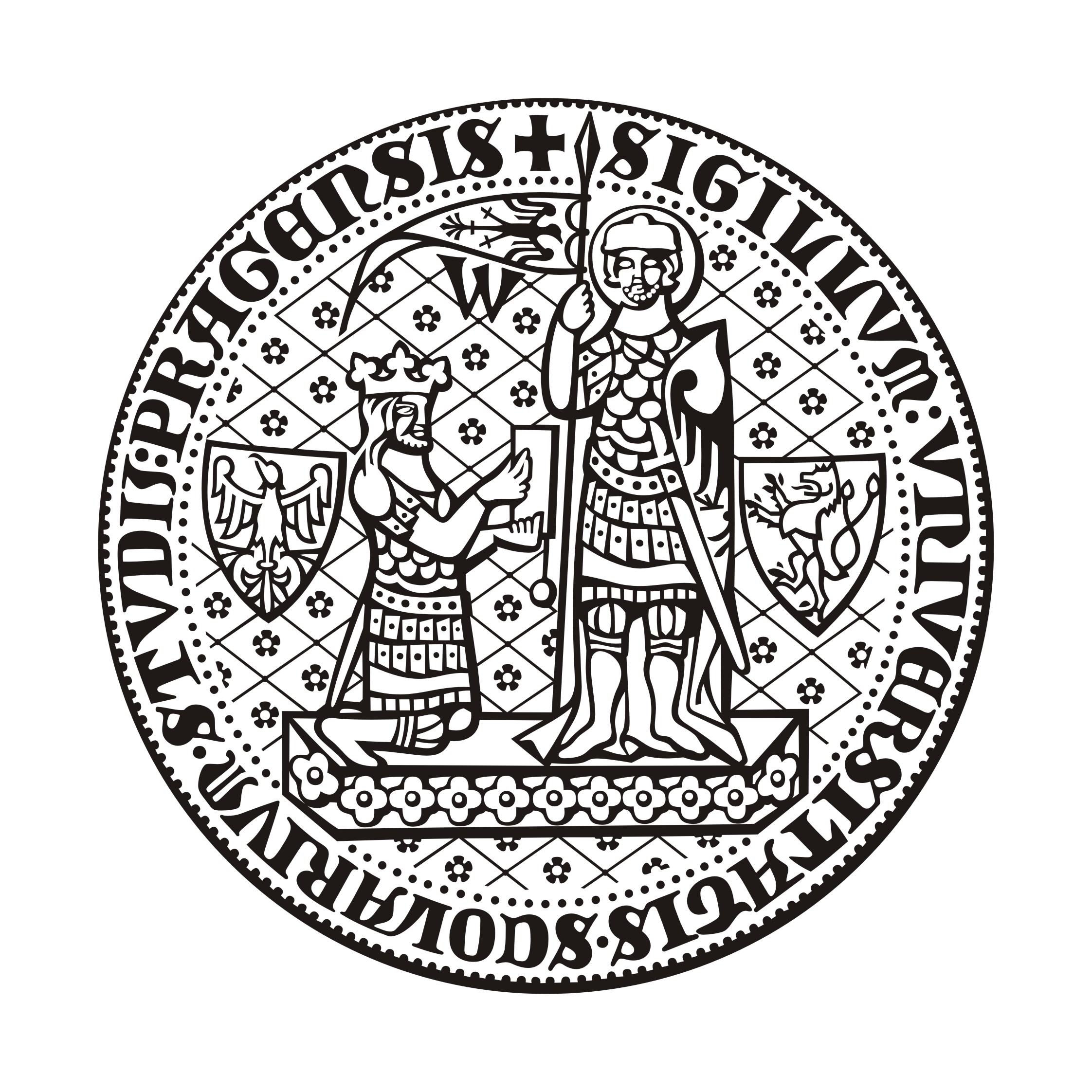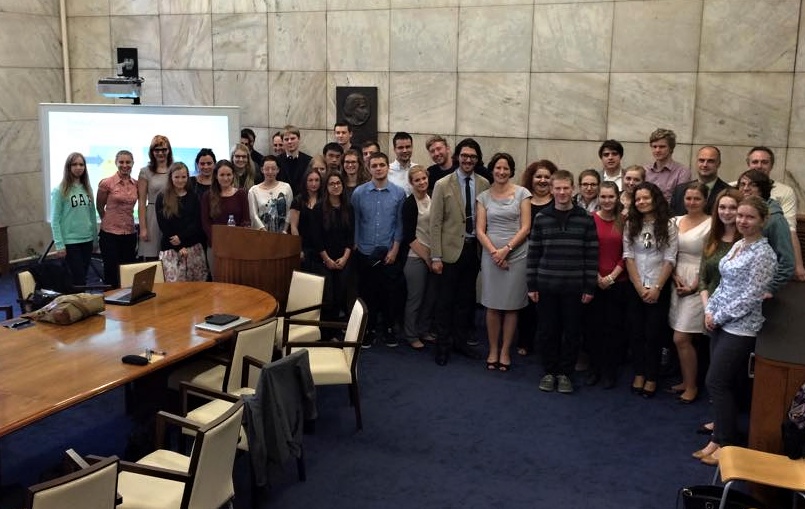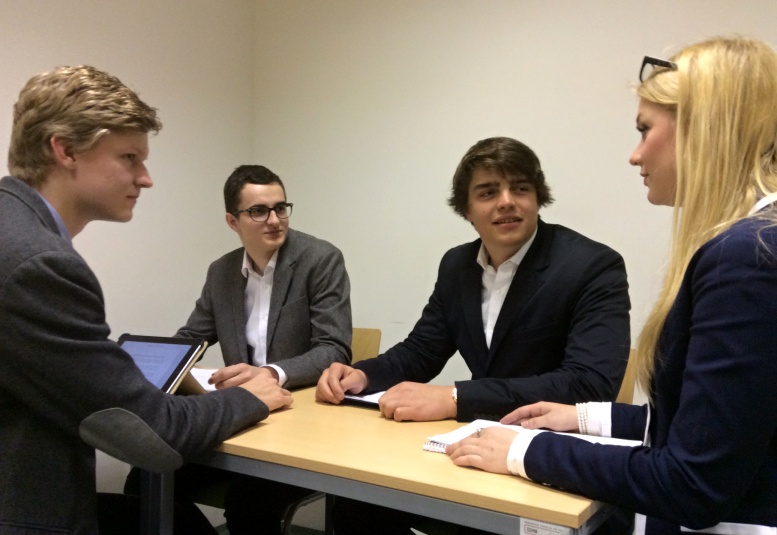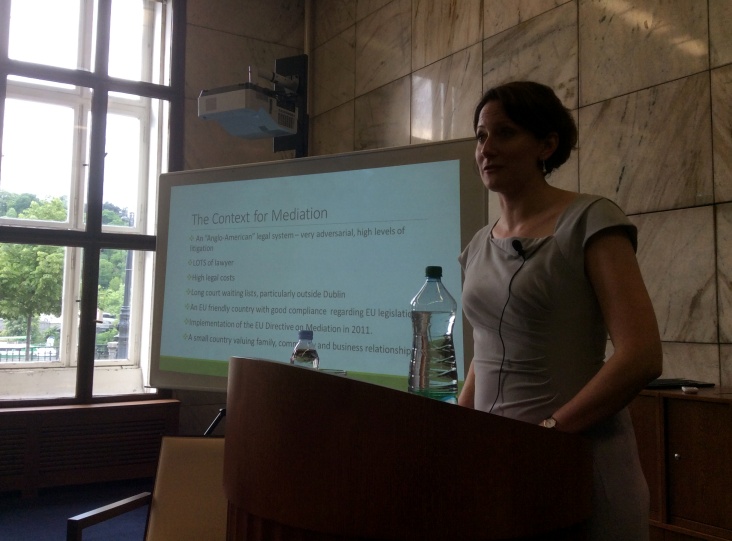Within this blog, we would like to familiarise you with the procedure of drafting and creating a complex mediation curriculum both from the inside and outside. Martin Svatos is one of the founders of this curriculum at the Charles University in Prague, and Sabine Walsh has accepted the invitation to give the final speech within this curriculum and to appraise the outcome of the effort.

Martin:
It all started with LinkedIn discussion couple month ago when I posted a question: What is your favourite mediation book and why? Well, at the time, I did not aim to gain the participants preferences and opinions about the best mediation books that should be used in the mediation training. The purpose of starting this conversation was slightly different – to receive some tips regarding the literature I might recommend to my undergraduate and graduates students in the emerging curriculum on negotiation and mediation. I have received a couple of really interesting comments and suggestions and despite thinking I knew a lot of ADR books, in the end of the day I sat at my computer and ordered a very big package of books.
Yet the goal of this post is not to discuss the books that might be used when lecturing on mediation, but rather the path we followed between starting this discussion and Tuesday, the 19th of May 2015, when we welcomed Sabine Walsh, our fellow contributor to this blog at the Law faculty of the Charles University in Prague. Her lecture concluded the first academic year when mediation and other ADR curriculums were thought at the Charles University in Prague.
Despite the fact law studies are organized as general and include both private and public law curriculums, students may focus on their future specialization by choosing the optional courses. Up to the last year, there was curriculum focusing neither on mediation nor on any other ADR procedures in depth as it is typical for countries with no or little tradition of mediation. To the contrary, the academic year proposed an exceptional set of six courses with an extended amount of hours dedicated to mediation, negotiation and other ADR. This may be regarded as an achievement since mediation was introduced relatively recently to Czech Republic by the Mediation Law that implemented the EU Mediation Directive.
Sabine:
And what a great idea to start at the beginning and introduce mediation education and training of such a high calibre so as to ensure that mediation as a profession will develop along with mediation regulation itself. It became clear to me while trying to lay out the complex, convoluted and often contradictory evolution of mediation and mediator education in Ireland what a gift it is to have a “blank page” to construct a curriculum and with it, a set of standards without first having to unravel current practices which developed in a haphazard way. If nothing else, I hope I was able to bring the message that this blank page provides the Charles University, and the Czech Republic, with a unique opportunity to shape the way disputes are resolved in the future.

Martin:
The Charles University in Prague should definitely belong to the leading educational institutions in Europe – not only because it is the oldest university to the East of Rhine and to the North of Alps. Its beginning dates back to as early as 1347 when Pope Clement IV approved its foundation. In those days, it was surely difficult to imagine that there will be something as alternative dispute resolution, let alone that ADR should be taught at universities. Yet some of the ideas then are somehow applicable to the contemporary mediation curriculum too. It is astonishing to read the words that the Czech king and Roman emperor Charles IV, whom after is the university called, included in the founding charter of the University in 1348:
“And so that our faithful people of our Kingdom who are ceaselessly starving for the fruits of knowledge, need not beg for alms abroad, but may find a fully-laid table in our Kingdom, and that those naturally gifted with cleverness, and moreover, may become educated through an epistemic search for knowledge, and will not be forced, indeed consider it needless, to undertake pilgrimage to search for knowledge or to plead other nations, to beg in foreign countries in order to have their desires satisfied, but they may enjoy fame while inviting others from abroad to join them and participate in the luscious taste and splendid gratitude…”
Considering that those lines are almost 670 years old, one has to acknowledge the forethought of the mediaeval monarch. Firstly, because of the unprofitable reasons that motivated him to foundation of the university, secondly because his message is still worth remembering, even after the centuries.
I have accidently came across those lines while making research for this contribution and despite the fact, I have heard them before, I was astonished. By introducing the mediation curriculum, we have been basically fulfilling the wish of king Charles expressed centuries ago.
Indeed, the students being hungry for knowledge of mediation do not have to travel abroad to the countries where the mediation does have its long tradition. The goal is to provide them with a “fully-laid table of different ADR curriculum options: They may choose from the one semester optional lectures on negotiation, mediation and arbitration both in English and Czech. As a surplus, those selected will be allowed to participate in the first year of Summer school on mediation that should perfect their knowledge.
When Tomáš Horáček, the director of the ADR Centre at the Law school of the Charles University and I were discussing goal of those courses, we agreed on the necessity not only to raise some new future mediators, but first and foremost to educate the future lawyers, judges and managers in awareness of mediation. Despite the fact this is long lasting investment, with a bit of luck we might see new generation of lawyers that are really in favour of mediation.
Sabine:
This is such an important place to start. In Ireland, there has long been a certain degree of tension between the legal profession and mediation. Some lawyers see mediation as a threat to their incomes, the highest of which are often derived from long, drawn-out court cases. Mediation has been viewed by some as a “soft” option, which involves talking about feelings and offering apologies. It is only recently, in no small part thanks to offering more mediation education to lawyers and judges that mediation has become a widely accepted dispute resolution mechanism. When I first started in mediation, clients self-referred through my website, looking for an alternative to expensive court proceedings run by lawyer’s who often, they felt, did not listen to them. Now the majority of my cases are referred by lawyers, and those same lawyers are active and helpful participants in the process. Last year, 22 qualified lawyers studied for a Diploma in Mediation offered by the Irish professional association for lawyers, the Law Society. If, like in the Charles University, this education in mediation, its value, it’s techniques and skills is offered to trainee lawyers, a culture of mediation will be created where lawyers and mediators work together to support their clients.

Martin:
To draft a complex curriculum as a green-field project in a non-mediation country is however a challenging job. All the fellow lecturers will surely confirm that to teach a single curriculum on mediation is one thing and to create a complex program on ADR is another one. When doing this job, we addressed several issues that might be useful for other professionals in countries not having a long tradition of mediation undergraduate and graduate education. The more might be those comments of some use since the Czech Republic meet the characteristics of middle-sized post communist European country with some 10 million citizens.
- Answer the Preliminary Issue: Would the students be interested? The answer is definitely yes. It is almost amazing how the young people are in favour of the alternatives. So whereas the broad public mistakes mediation for meditation, the students are well aware of basic principles of consensual nature of mediation. This is especially the case, once there is mediation law and once some basic discussions on the issue took already place.
- Prepare to Advocate: Well, the enthusiasm for mediation is not shared by all. So you may face serious resistance when it comes to the funding of the program. Fortunately, I had the good luck to cooperate with my fellow lecturer and director of the ADR Centre of the Chales University, Tomáš Horaček who took care of the administrative implementation and persuaded the university government about the advantages of our project.
- Draft the Reading List: Once the administrative topic is tackled, you have to prepare the content of the lectures. One of the main issues will surely be the literature. Unless English is the first language in your country, you will most probably struggle to draft a sufficient reading list for your students. There are surely some books on mediation in Czech. However, those are of different quality and none of them is focussing mainly on undergraduate and graduate students as main group of readers. We have regarded this as the main obstacle especially in the curriculums taught in Czech. Anyway, this has inspired us to the decision to prepare such publication in the coming years.
- Adapt Role-Play: Other important issue related to the curriculum itself are the role-play materials. There is lot of them online available in English and some of them are even for free. However, I would recommend adapting them to local conditions so the students might deal with problems and conflicts that bothered their own society. Otherwise, the cases will sound somehow artificially, students will not be able to put themselves into parties’ shoes and they will not appreciate the efficiency of mediation completely.
- Use Social Networks: Do not hesitate to use social networks to cooperate with the students. Facebook and LinkedIn are the right choice that will mirror the everyday activity of the students. I decided to create a LinkedIn group as forum for the students’ discussions. This has been intended as simulation a real discussions in those medias that are led on everyday basis by professionals from all around the globe. Some of the students than took advantage of participating in another non mandatory events that were presented in LinkedIn (organized not always by university), some of them even received job proposals.
- Participate in the Students Competitions: Our students have participated not only in the ICC Mediation Competition that took place in February in Paris, but they are heading for Vienna to attend the IBA-Viac Mediation And Negotiation Competition. Those are especially precious experiences. The only disadvantage here is obviously the limited number of students participating in the team.
- Do not limit yourself: Once you will achieve the first goal, set another one. We are planning to consolidate the curriculums and to set another goals, including some other lectures and executive education which of. I am sure, you will hear of soon.
- Bring the Experts: Last but not least advice would definitely be not to teach everything on one’s own but to invite the experts on different fields to give a guest lecture. In this regard, our students not only visited the Czech Bar Association (where the head of the ADR Section, Martina Doležalová, made a speech to the students), but they also had a chance to participate in several conferences (about one of them I posted recently here) and finally to hear the experts from different countries.
The last remark is bringing me back to the lecture of Sabine that concluded the mediation academic year at the Charles University in Prague. She mentioned not only some general mediation regulation, but also some really interesting war stories, including one that was related to the dispute in an Irish microbrewery. Especially this was largely appreciated by the students…

Sabine:
It is not often one comes across a group of students who are happy to spend two hours on a warm Tuesday evening listening to someone tell them about a foreign country in a foreign language! I was astonished at the welcome I received and the understanding, interest, and indeed language skills shown by the students in participating and asking questions. It quickly became clear that Ireland’s path to mediation, and mediation as a stand alone profession, has been quite colourful, influences heavily by political agendas, the financial rollercoaster we have been on, and changing legal and social culture. The students were astonished, for example, to hear that as a mediator in Ireland you are required to have professional indemnity insurance.
I was able to share some of my more challenging and inspirational cases with the students, which I hope will inspire them to see the real value of mediation, and maybe some of them to work as mediators. It is always a useful exercise to tell someone else about a situation in order to re-appraise it and see the flaws and opportunities in a system such as that within which mediation lives in Ireland at present. As incoming president of our national mediator’s association, I see particularly the challenges, and the work that lies ahead in making mediation a main stream first choice in dispute resolution, but this presentation also gave me the opportunity to see how far we have come.
In terms of scholarship and curriculum design, one of my core beliefs is that mediation cannot be taught to the level to which it should be in short professional courses. To really learn to work with and address conflict requires time, group and individual study and practical and reflective learning. A university setting such as the Charles University is idea for this, even more so because in that context the learning is facilitated by experienced and visionary individuals such as Martin and Tomas.
We are only a small island on the edge of the Atlantic, but we are a nation of scholars, revolutionaries and change-makers (today we should become the first country to introduce gay marriage by means of a popular vote!). I hope that sharing some of our vision and experience with my colleagues in Prague was helpful and will lead to future mutual learning and co-operation. Thank you Tomas, Martin and Zuzana for your warm welcome, hospitality and kindness and for details of further cross border collaboration, watch this space…!
________________________
To make sure you do not miss out on regular updates from the Kluwer Mediation Blog, please subscribe here.



Well done Martin on completing your first year (and Sabine too in Ireland). It is a great accomplishment to get mediation onto a sound, academic footing and essential for its long term health. As someone else who has tried to do this in a ‘non-mediation country’ (Scotland) I have learned that mediation is not ‘owned’ by the law and can flourish in all sorts of unpredictable ways.